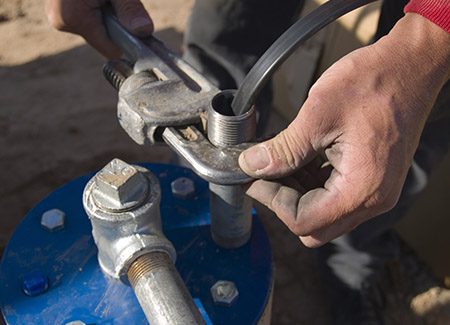Costs Water Softeners: Changing Tough Water right into Soft, Lavish Convenience
Costs Water Softeners: Changing Tough Water right into Soft, Lavish Convenience
Blog Article
Understanding the Trick Elements of Effective Water Filtration Systems

Importance of Water Purification Solution
Water filtration systems play an essential role in ensuring accessibility to tidy and risk-free drinking water by effectively getting rid of pollutants and pollutants. These systems are vital in addressing the expanding issues over water high quality and the prospective health dangers connected with eating polluted water. By utilizing different filtration devices such as reverse osmosis, activated carbon, and UV sanitation, water filtration systems can efficiently remove damaging substances like germs, infections, heavy steels, and chemicals from the supply of water.
In addition, water filtering systems aid to enhance the taste and smell of water by removing chlorine, sediments, and various other pollutants that can impact its top quality. Water Filtration Systems. This improvement in water top quality not only makes it much more palatable however additionally encourages individuals to consume an adequate amount of water daily, advertising far better hydration and overall health and wellness
Kinds Of Filtering Parts

Physical filters are made to physically strain out pollutants from the water. These filters can be constructed from products like ceramic, carbon, and even sand, and they work by trapping bits bigger than the filter's pores as water goes through.
Chemical filters use various chemical processes to eliminate pollutants from the water. Instances include triggered carbon filters, which adsorb pollutants, and turn around osmosis membrane layers, which make use of stress to different impurities from the water.
Organic filters utilize living organisms like bacteria or algae to damage down raw material and contaminants in the water. These filters are usually used in wastewater therapy plants or natural water purification systems.
Comprehending the different types of filtration components is critical for selecting one of the most ideal water filtration system for particular filtration demands.
Function of Sediment Filters
Debris filters play an essential role in water filtration systems by efficiently capturing solid particles suspended in the water. These filters are typically the first line of protection in a filtration system, getting rid of bigger bits such as sand, silt, dirt, and rust before the water relocates via finer filtration stages. By trapping these debris, the filters prevent them from getting to downstream elements, hence extending the life-span and effectiveness of the entire system.
Neglecting this maintenance can lead to clogging, reduced water flow, and jeopardized filtering performance. In general, debris filters are crucial elements that browse around here add substantially to the effectiveness of water filtering systems.
Duty of Activated Carbon Filters
Playing a crucial duty in water filtration systems, triggered carbon filters are crucial in removing pollutants and pollutants from the water supply. As water passes via the filter, the triggered carbon holds and draws in onto the pollutants, making sure that the water that comes out on the other side is cleaner and safer for intake.
Turned on carbon filters are very effective at enhancing the taste and smell of water by decreasing chemicals that can influence its high quality. Due to their flexibility and dependability, turned on carbon filters are a vital element in making certain that water is purified to the greatest criteria before getting to customers.
Comprehending Reverse Osmosis Systems
Reverse osmosis systems are sophisticated water filtration systems that utilize a sophisticated process to eliminate pollutants and impurities from drinking water. These systems work by using pressure to the water, compeling it through a semi-permeable membrane. This membrane layer functions as a barrier, enabling just pure water molecules to pass through, while blocking larger molecules such as minerals, chemicals, and various other Recommended Site contaminations. Consequently, the water that comes out on the other side is considerably cleaner and more secure for consumption.
Additionally, reverse osmosis systems are reasonably low-maintenance and can be installed under the sink or in a main purification system, providing convenient accessibility to tidy water throughout the family. On the whole, comprehending exactly how reverse osmosis systems function can help people make notified decisions regarding their water filtration demands.
Conclusion
In conclusion, effective water filtration systems are vital for making sure risk-free and clean drinking water. By understanding the function and function of each part, people can make informed choices when selecting a water useful site filtering system.
Water filtration systems play a critical function in making certain access to clean and secure drinking water by properly getting rid of pollutants and pollutants. By utilizing numerous purification mechanisms such as reverse osmosis, turned on carbon, and UV sterilization, water filtration systems can efficiently eliminate unsafe materials like bacteria, viruses, heavy metals, and chemicals from the water supply.
Debris filters play a vital function in water purification systems by properly capturing strong bits suspended in the water (Pump repairs & installation).Playing an essential function in water filtering systems, activated carbon filters are instrumental in getting rid of contaminations and impurities from the water supply.Reverse osmosis systems are advanced water filtration systems that employ an advanced process to remove impurities and pollutants from drinking water
Report this page